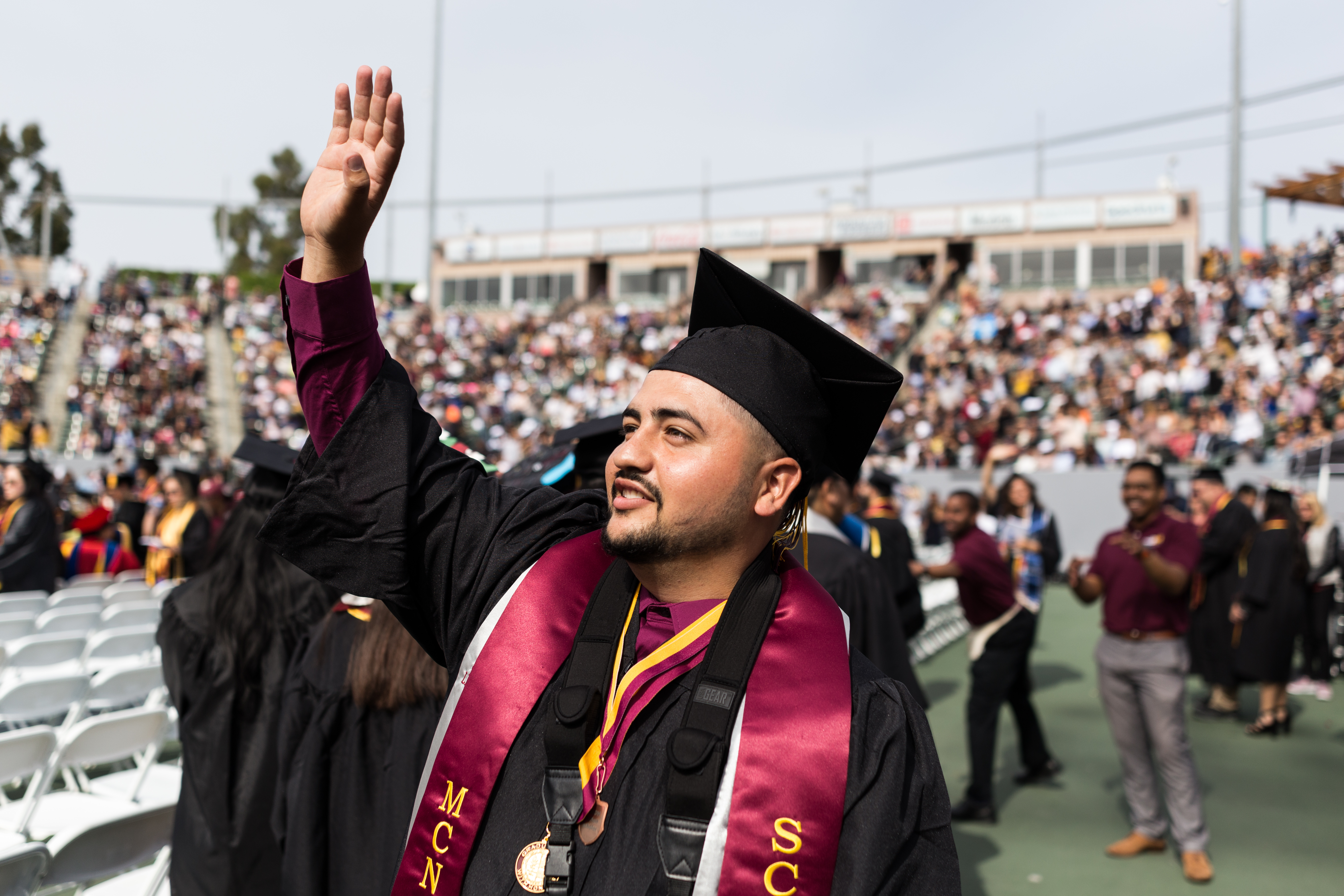By Yeymy Garcia, Managing Editor
Years after his tragic death, Ronald Erwin McNair’s legacy lives on through the McNair Scholars Program designed to further the academic dreams of students who are underrepresented at the graduate level. With our campus being 90% of people of color, this is a program you need to know about.
McNair was the second African American in history to fly in space. He earned his doctorate in physics from MIT at age 26, was selected by NASA for the space shuttle program in 1978 and was the mission specialist on the Space Shuttle Challenger when it exploded 73 seconds after takeoff in 1986, killing all seven crew members.
That same year, Congress launched the Ronald E. McNair Post-Baccalaureate Achievement Program to help minority, low-income and first-generation students pursue graduate studies across the nation, including CSUDH.
Eligible applicants must meet certain criteria, including being a first-generation college student from a low-income household, or a member of a group underrepresented in graduate study such as African American, Hispanic, or Native American and making the Oct. 1 deadline.
HOW TO APPLY
Apply online at www.csudh.edu/mcnair or visit their office, LIB 4200, to fill out an application. For more information, you can call (310) 243-2098 or email mcnair@csudh.edu.
The benefits of the program? You get to work with a faculty mentor who will help guide you through your research project, learn research methods, visit Research I institutions, present at academic conferences, Graduate Record Examinations (GRE) preparation and fee reduction, graduate school application fees waived, and a $2,400 summer research stipend.
“We understand these students are low-income,” Gabriela Montes, CSUDH’s McNair interim program coordinator, said. “Having that research experience in the summer often times for students specifically on our campus means not being able to work, which they can’t do. [We] provide a stipend for the student so it’s less time worrying about financial troubles [like] paying rent and [food]…things that are very important and very real and we strive to help take that worry away by offering a stipend.”
The value of a graduate degree has never been more important, Montes said.
One graduate McNair scholar, Jesús Eduardo González realized this importance – but as a first-gen student he was unsure of his academic plans when he first started at DH, but he applied when he was a junior after hearing about the program. With the help of his academic mentor, Michael Galant, professor in Modern Languages, he was accepted to the University of Arizona to pursue his Ph.D. in Linguistics with a full ride.

“McNair helped me with funding to visit graduate schools I was interested in attending, editing my proposals, curriculum vitae (CV), and research and personal statement,” González said. “Everything I learned and did is helping me in my first year of graduate school.”
González is not the only first-gen student unsure about graduate school when they start at CSUDH. Reaching those students early is key for the McNair program, Montes said, because they mostly accept sophomores and juniors because students need time to develop their research project and apply to schools. If a student doesn’t hear about it until their senior year, it might be too late.
“The more involved students get on campus, the more they’ll hear about everything else,” Montes said. “The campus has been working on more outreach and creating more spaces for belongingness but for each individual it’s got to take a, ‘I see it and I’m going to take it.’”
The Oct. 1 deadline can also be difficult for transfer students, who only have about five weeks to get to know the campus and connect with instructors to be their potential mentor and for letters of recommendation.
“If they’re transfer [students], they’re usually already taking classes in their major so when they come in to ask about our program we suggest, ‘Introduce yourself, go and talk to them, and stalk their office hours,’” Montes said.
Even though the application is due in Oct., the program continues to accept students as late as May depending on your dedication and experience with research.
“Whether or not [students] apply to our program, they should start looking into [graduate school] and where their career is going to take them,” Montes said. “Specifically, for our program, know that it’s here and we don’t charge for our application so always apply and give yourself your best chance.”

